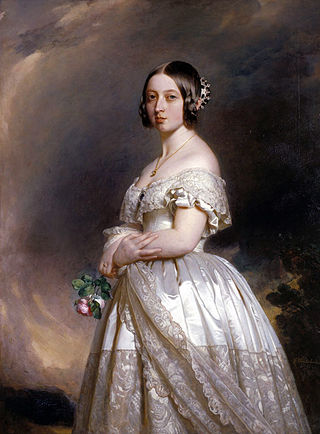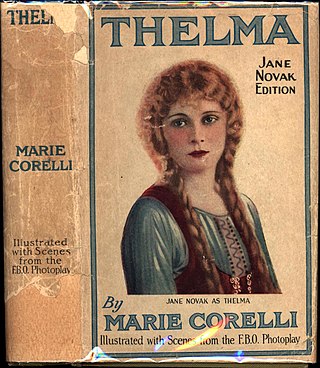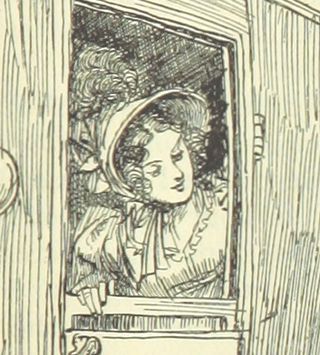Related Research Articles

Victoria is a feminine given name. It is also used as a family name.

Suárez is a common Spanish surname of Germanic origin, of which Juárez is an alternative form. It is widely spread throughout Latin America as a consequence of colonization. In origin it is a patronymic meaning "son of Suero" or "son of Soeiro". It may be derived from the Latin name Suerius, meaning "swineherd", in turn related to the Visigothic "surhari". The surname originates to the province of Asturias in northwest Spain. This surname is most commonly found in Mexico, Spain, Cuba, and Argentina.
Gómez is a common Spanish patronymic surname of Germanic origin meaning "son of Gome". The Portuguese and Old Galician version is Gomes, while the Catalan form is Gomis. The given name Gome is derived from the Visigothic word guma, "man", with multiple Germanic cognates with the same meaning, which are related to Latin homo, "man".
Jamie is a unisex name. Traditionally a masculine name, it can be diminutive form of James or, more rarely, other names and is of Scottish Gaelic origin. It is also given as a name in its own right. Since the mid-20th century it has been used as an occasional feminine name particularly in the United States.
Karen is a given name and occasional surname. In English, it is a feminine given name derived from the name Katherine, and it is also found in modern Africa, as well as in East Asia. However, in other countries such as Iran and Armenia, it is a masculine name deriving from Middle Iranian. The name 'Karen' also became a popular nickname for middle aged women that easily resort to asking for management in the face of adversity.

Thelma is a female given name. It was popularized by Victorian writer Marie Corelli who gave the name to the title character of her 1887 novel Thelma. Although the character was supposed to be Norwegian, it is not a traditional Scandinavian name. It may be related to a Greek word meaning "will, volition" see Thelema). Note that although consonant with another female given name, Selma, the two are not synonymous.
Monica is a female given name with many variant forms, including Mónica, Mônica, Monique (French), Monika, Moonika (Estonia), and Mónika (Hungarian).
Adriana, also spelled Adrianna, is a Latin name and feminine form of Adrian. It originates from present day Italy and Spain.
Espinosa or Espinoza is a Spanish and Portuguese surname.
Lorena is a German, English, Croatian, Italian, Portuguese and Spanish feminine given name with different origins. It can be used as a version of Lorraine or, alternately, as a Latin version of Lauren. As a Croatian, Italian, Portuguese and Spanish name, it is derived from the Latin Laurentius. As a German and English name, it is a modern form of the Germanic Chlothar. As used in the United States, it may have come from the song title of a popular 1856 song by Rev. Henry D.L. Webster and Joseph Philbrick Webster, who are said to have derived the name from an anagram of the name Lenore, a character in Edgar Allan Poe's 1845 poem The Raven. In Margaret Mitchell's 1936 novel Gone with the Wind, Scarlett O'Hara's daughter with Frank Kennedy was named Ella Lorena in reference to the song Lorena. Frank G. Slaughter wrote a book called Lorena in which the character was also called Reeny hence the alternative pronunciation of Lor ee na.

Emma is a feminine given name. It is derived from the Germanic word ermen, meaning "whole" or "universal". It likely originated as a short form of names such as Ermengarde or Ermentrude. Its earliest use begins at least from the early seventh century, with Frankish royal daughter Emma of Austrasia and the wife of Eadbald of Kent found in written sources. Its popularity in the medieval era increased because it was the name of Emma of Normandy, mother of Edward the Confessor. Emmeline is a Norman variant of Emma that was introduced to England by the Norman invaders in the 11th century. The name is etymologically unrelated to Amalia, Amelia, Emilia, and Emily, all of which are derived from other sources, but all of these names have been associated with each other due to their similarity in appearance and sound. Emma has been used as a short form of some of these names or shares diminutives such as Em or Emmy with them.

Jasmine is an English feminine given name.
Roberta is a feminine version of the given names Robert and Roberto. It is a Germanic name derived from the stems *hrod meaning "famous", "glorious", "godlike" and *berht meaning "bright", "shining", "light".
Claudia is a female given name equivalent to Claudius or Claudio. In Portuguese, it is accented Cláudia. A variant and cognate form is Klaudia. It was originally used to refer to any woman who belonged to the ancient Roman Claudia gens. Claudia is a common name in countries that speak Germanic languages and Romance languages.
Mimi is a feminine given name and a shorter form (hypocorism) of the given names Miriam, Emilia or Naomi.
Alicia is a feminine given name. It is a variant of Alice, which comes from the Germanic name Adalheidis (Adelaide), meaning "noble natured".

Veronica is a female given name, a Latin alteration of the Greek name Berenice (Βερενίκη), which in turn is derived from the Macedonian form of the Athenian Φερενίκη, Phereníkē, or Φερονίκη, Pheroníkē, from φέρειν, phérein, to bring, and νίκη, níkê, "victory", i.e. "she who brings victory".
Carrie is a female given name in English speaking countries, usually a pet form of Caroline or Carolyn. Other spellings include Cari, Kari, Karie, Kerry, Carri, Karri, Kerrie, Kerri, Keri, Cerry, and Karrie, as well as various other spellings. Related names may include Carol, Caroline, Carolyn, Carolyne, or Carolynne.
Frida is a feminine given name. In central and eastern Europe, Frida is a short form of compound names containing the Germanic element fried meaning "peace".

Reina, which is also spelled Raina, Rayna, or Reyna in English, is a feminine given name with multiple, unrelated origins from a number of different languages and cultures. All of these unrelated names are pronounced and written similarly in English.
References
- ↑ Withycombe, E. G. (1985) [1945]. English Christian Names. Oxford: Oxford University Press. p. 230. ISBN 0192812130.
- ↑ Tuan, Laura (2010). Che nome dare al tuo bambino (in Italian). Firenze: Giunti. p. 172. ISBN 9788841240267 . Retrieved 9 January 2017.
- ↑ "Norma". Think Baby Names. Retrieved 2009-02-21.
- ↑ Macleod, Iseabail; Freedman, Terry (1995). The Wordsworth Dictionary of First Names. Ware: Wordsworth Reference. p. 173. ISBN 1853263664 . Retrieved 9 January 2017.